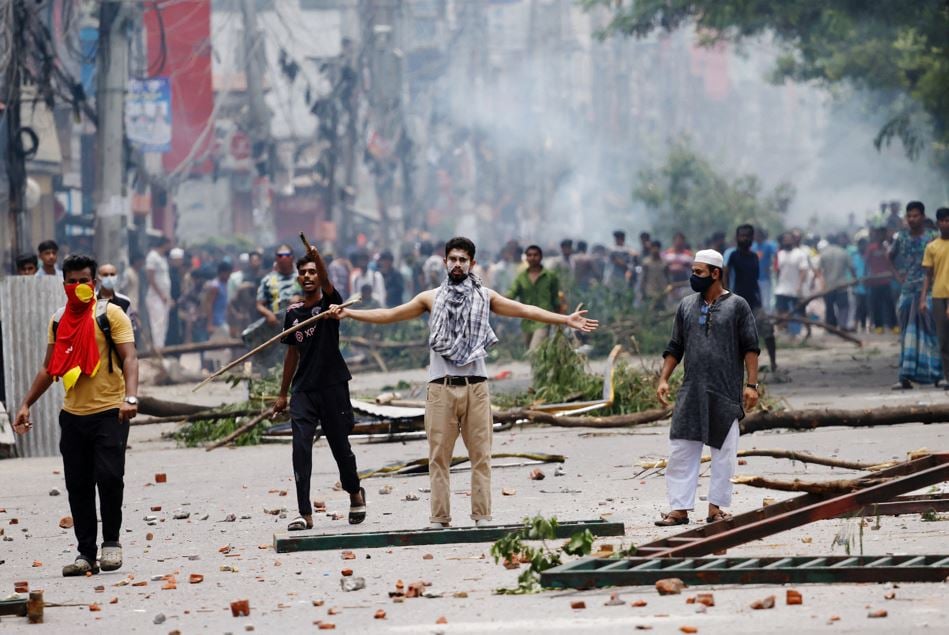Violence escalates in Bangladesh’s capital Dhaka and other parts of the country
New Delhi:
Soldiers have been patrolling Bangladesh’s streets to quell growing civil unrest sparked by student protests, and police have been given “shoot to kill” orders against anyone flouting the curfew.
Get the latest on this big news Top 10 here
-
The violence this week has left at least 133 people dead so far and poses a major challenge to Prime Minister Sheikh Hasina’s authoritarian rule after 15 years in power. The protests forced Hasina to abandon plans to leave on a diplomatic visit on Sunday.
-
With the death toll rising and police unable to contain violent protests, the Bangladesh government imposed a nationwide curfew on Friday and deployed the military.
-
The night-time curfew was temporarily lifted on Saturday afternoon to allow people to carry out essential errands, but everyone else was ordered to stay at home and all gatherings and demonstrations were banned.
-
Authorities also imposed a nationwide internet shutdown on Thursday, which remains in effect, severely hampering communications within and outside Bangladesh. Government websites remain offline and major newspapers such as the Dhaka Tribune and the Daily Star have been unable to update their social media platforms.
-
The Supreme Court is expected to meet later today to rule on whether to scrap the controversial employment quota system.
-
Around 1,000 Indian students have returned to India from Bangladesh via various land routes and by air. External Affairs Minister S. Jaishankar said the Ministry of External Affairs is committed to ensuring the safety and welfare of Indians in Bangladesh.
-
The U.S. State Department has warned Americans against traveling to Bangladesh and said it would begin evacuating some diplomats and their families from the country, which is in the midst of a deadly civil war.
-
Violence has escalated in Bangladesh’s capital Dhaka and elsewhere in response to student protests calling for reforms to the government quota system.
-
Protesters are demanding the end of a quota system that reserves up to 30 percent of government jobs for relatives of Bangladeshi veterans who fought in the 1971 war of independence with Pakistan.
-
The quotas have angered students who face high youth unemployment: Nearly 32 million young people in Bangladesh are unemployed and out of education, out of a total population of 170 million.


